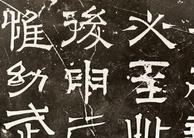|
Anthropology
Page 4/4 | Showing results 46 - 59 of 59
2009, Vol. 1 No. 12
Written language is one of the greatest human accomplishments; its formation signifies a breakthrough in human progress. The development of a standardized writing system seems to be a somewhat natural occurrence in the evolution of any given advanced... Read Article »
2009, Vol. 1 No. 11
In less than one year, South Africa will be the proud host of the 2010 World Cup. To many, this privilege is a mere formality of the Cup. Indeed, hosting the World Cup is an honor, but for South Africa it symbolizes a far more complex idea. A history... Read Article »
2009, Vol. 1 No. 11
It is important to note that information about human rights abuses in Chile, as well as the exact details and full connections of its recent political history, are still in the process of being sifted through, made public, gathered, and organized... Read Article »
2009, Vol. 1 No. 11
Within the cultural framework of America, the systemic structure is characterized by White male patriarchy that allows for Black males to have the ability to negotiate the way in which they have been socialized and institutionalized to think, act... Read Article »
2009, Vol. 1 No. 11
The performativity of ritual, theatre, and spectacle give credence to all three being viewed as a type of social action. Not only do these representations involve enactments, as such, they also involve social interaction among participants. There... Read Article »
2009, Vol. 1 No. 11
In Between Men: English Literature and Male Homosocial Desire, Eve Sedgwick proposes the idea that not only women, but also men, can travel along a social spectrum that ranges from friends to lovers. However, she argues that the male homosocial... Read Article »
2009, Vol. 1 No. 11
The simultaneous allure and repulsion of Mexican machismo belies its ambiguous nature as an identifying characteristic of the nation itself and as a phenomenon that some claim is unique to Mexico and others say is endemic throughout patriarchal... Read Article »
2009, Vol. 1 No. 10
Henry Park: family man, father, son, husband, spy, traitor to his race, without race, ghost among the corporeal, in the wrong place, homeowner, homeless. Borne of nothing, self-cesarean, autochthon. Native speaker of the hyphen, begat on a plane... Read Article »
2009, Vol. 1 No. 10
Américo Paredes, in his 1971 article “The United States, Mexico, and Machismo” (Marcy Steen, trans.), defines the macho as “the superman of the multitude,” a “national type” by which Mexico, as a nation... Read Article »
2009, Vol. 1 No. 10
American sport has become far more than contests with rules played on fields, diamonds, or rinks. Our current conception of sport is more than just a ball moving between groups of athletes, or a struggle for a finish line, or an effort to impress... Read Article »
2009, Vol. 1 No. 10
Language use is a major factor in defining one’s cultural identity. People learn slang, lingo, jargon, idiomatic phrases, and other language tools, and with them participate in a cultural, social environment in which they can thrive. For ethnic... Read Article »
2009, Vol. 1 No. 10
Whether you noticed it or not, in 2008 Daylight Saving Time ended a bit later than normal. Though this is in fact the second year of the new Daylight Saving Time, or DST, schedule, many Americans are still not used to the new timeframe. DST now... Read Article »
2009, Vol. 1 No. 10
In 1950 the Associated Press polled close to 400 sportswriters in order to name the greatest male and female athlete of the first half of the twentieth century. For the men, a crowded field of legends including Babe Ruth, Joe Louis, Jesse Owens,... Read Article »
2009, Vol. 2 No. 2
Two years ago, my mom handed me the article, "Below a Mountain of Wealth, a River of Waste," from The New York Times, describing Freeport-McMoRan's mining activities in Papua New Guinea. After reading "Below," I knew that the world had to change... Read Article »
Expedited Article Review
Submit an article and get a decision fast.
If you need a fast decision, INQUIRIES Journal offers expedited processing of your submission for a small fee. Depending on the expedited review option you choose, you can receive a decision in as few as 5-days.
In addition to a shorter review period, the fee supports the journal's continued operation and open-access publishing model. Standard submissions are always free. Submit Now » - Submit an Article to Inquiries Journal -
|







